The step-through e-bike model, known for its user-friendly design, has gained popularity among riders. This e-bike design provides senior riders, women and people with mobility limitations the chance to resume cycling and experience the thrill and liberation of two-wheeled exercise more efficiently.
The Cyrusher Trax is a recent addition to the step-through category. This article will compare the Trax to Magicycle's Deer, helping riders determine which step-through model offers more power for their travel needs. Choosing the right e-bike will allow you to fully enjoy the exhilaration of e-cycling.

Product Overview
The Cyrusher Trax is the latest addition to the step-through category of Cyrusher e-bikes. It stands out with its powerful configuration, offering great power, full shock absorption and other very functional features. The Trax is an ideal choice for those who want to experience the thrill of power riding.
The Magicycle Deer is a robustly-equipped model that can be compared to an SUV in the automotive world. It has undergone upgrades in terms of kinetic energy, damping and brakes, ensuring a comfortable yet powerful riding experience.
|
Model |
Cyrusher Trax |
Magicycle Deer |
|
Price |
£2,799 |
$2,499 |
|
Motor |
250W limited Bafang hub motor |
750W brushless gear motor (IP55) |
|
Battery |
52V 20Ah LG lithium battery |
52V 20Ah LG lithium battery |
|
Suspension |
oil & spring front suspension & rear air suspension |
alloy hydraulic lockout suspension fork & hydraulic coil suspension |
|
Throttle |
half twist throttle |
half twist throttle |
|
Sensors |
torque sensor |
cadence sensor, speed sensor |
|
Pedal assist |
Shimano 9-speed |
Shimano 7-speed |
|
Frame |
6061 aluminum full suspension frame |
Deer 26": 18" 6061 aluminum frame; Deer 20": 16" 6061 aluminum frame |
|
Range |
up to 56 Miles |
60-80 miles |
|
Brake |
Logan fully hydraulic disc brakes 180mm front + rear |
180mm Hydraulic Disc Brakes |
|
Tyres |
26" x 4.0" Fat Tires |
Deer 26": Kenda 26"x4.0" Fat Tires; Deer 20": Kenda 20"x4.0" Fat Tires |
|
Display |
3.7" LCD display, Colorful Smart Computer |
Color LCD Display with USB Charging |
|
Horn |
Yes |
N/A |
|
Weight limit |
330 lbs. (150 kg) |
400 lbs. |
|
Light |
Front + rear |
Integrated front and brake lights |
|
Warranty |
2 Years |
2 Years |
Comparison
Performance and Speed
The motor setup and the velocity at which an e-bike moves are crucial factors that influence the electric bike's performance. A higher motor configuration enables the vehicle to generate more powerful energy, resulting in improved performance on challenging terrains. Therefore, the motor configuration directly affects the overall power and speed of the e-bike.
The Trax electric bike utilizes a Bafang motor which is widely recognized in the industry for its consistent and reliable power output. This motor supports various riding styles including mountain climbing and other outdoor adventures. On the other hand, Deer electric bikes have opted for a self-developed motor which also offers strong performance. However, since it is not a branded motor like the one chosen by Trax, the manufacturing cost is lower.

Battery Life and Range
Both electric assist bikes come with LG lithium-electric batteries with the same capacity. The battery is the sole source of energy that powers the e-bike, so having a higher-capacity battery allows for a greater distance to be covered. Both e-bikes have a 52V 20ah battery capacity which is sufficient for most people's daily riding needs and offers a reliable riding range.
Design and Build Quality
Both the Cyrusher Trax and Magicycle Deer models have frames made of aluminum which ensures stability and prevents oxidation. This makes it easier for riders to care for and maintain their bikes. Still, when it comes to design, the Trax model stands out with its use of vibrant colours and an original lightning bolt graffiti design. This gives the entire model a strong aesthetic appeal. The Trax is available in four colours, allowing riders to personalize their bikes according to their preferences. On the other hand, the Deer model follows a more traditional design with a monochromatic frame, demonstrating a consistent design style. The Deer is also available in four colours, offering riders a range of options.
Riding Comfort and Ergonomics
The level of comfort you experience while riding an e-bike can significantly impact how frequently you use it and ultimately determine if it is a good investment. The ease of your ride is influenced by various factors such as the quality of the saddle, the design of the handlebars, your riding position and the settings of the vehicle's shock absorption system.
Starting with the saddle, both models have a saddle that can be adjusted to accommodate the rider's height. The saddles are ergonomically designed for comfort during long rides. The handlebar design can significantly impact the rider's posture. Trax's curved handlebar design allows the rider to stay upright, reduces discomfort during long rides and promotes flexibility. In comparison, the Deer model has a straight handlebar design that requires more flexibility to grip properly and may reduce comfort on long rides.
The damping system is crucial in ensuring a comfortable ride, especially on unpaved roads in mountainous areas where the terrain is more challenging. Riding on rough mountain surfaces without a cushioning system can result in a very bumpy ride. Fortunately, both e-bikes are equipped with full suspension, making them ideal for enjoying the thrill of mountain biking. However, it is essential to note that the two e-bikes differ regarding their rear shock absorber configurations. The Trax e-bike features a rear air shock absorber which provides a smoother and more fluid damping effect, reducing the impact of obstacles and enhancing the overall riding experience. On the other hand, the Deer e-bike utilizes a coil rear shock absorber which has some limitations in terms of cost and damping effect, ultimately resulting in a less optimal riding experience than the Trax e-bike.

Moreover, the inclusion of a pedaling sensor, which is an upgraded feature in Trax electric bike, is worthy of mentioning. The Trax offers a torque sensor that significantly enhances the riding experience by reducing the likelihood of ghost pedaling and providing a more intuitive pedaling experience. In contrast, the Deer e-bike has chosen a more cost-effective cadence sensor that is not impacted by the force applied to the pedals, but this results in faster depletion of the battery energy used to assist the ride. Therefore, the pedaling sensor is a crucial component that should not be underestimated when considering the overall riding experience.
Safety
The high velocity of an e-bike is its distinctive selling point, so the ability to brake effectively becomes a crucial aspect of ensuring a safe riding experience. Both e-bikes come equipped with hydraulic disc brakes featuring 180mm threads, offering consistent performance in daily use and effectively minimizing the skidding distance caused by mechanical disc brakes. In terms of braking safety, both e-bikes are equipped with reliable features.
Technology and Features
Both e-bikes prioritize practicality in their design. Riders often pay attention to features such as the display, integrated lights and horn. Both models have backlit full-color displays showing riders important cycling parameters like speed, gears and mileage. This allows riders to monitor their vehicle data more accurately. Additionally, front and rear lights are installed to ensure visibility in dim riding conditions, and the rear brake light activates during emergency braking to warn surrounding vehicles and enhance overall riding safety.
Moreover, the Trax e-bike includes a unified headlight and horn design which streamlines the visual style while providing various functional features. The Deer's model does not have this horn design, so riders who require it will have to incur additional costs to buy and install it. Additionally, the Deer e-bike's weight capacity of up to 400 lbs. is a noteworthy feature. The sturdy frame of the bike can serve as a practical means for transporting goods.
Price and Value
The two e-bikes have different price tags, essentially due to variations in their performance configurations. The Trax is priced at £2,799 while the Deer is priced at $2,499. From a price perspective, the Deer seems more appealing, but when considering product value, the Trax offers a better price-performance ratio. The Trax's overall design prioritizes aesthetics, performance and riding comfort, offering riders a selection of powerful step-through e-bikes. The Deer also has a powerful performance configuration, but certain features, such as the motor and shock absorbing system, are not as cost-effective to manufacture.
Customer Reviews and Testimonials
Both Cyrusher Trax and Magicycle Deer have opened up their purchase review channels. These platforms allow consumers to access real-time purchase reviews for the products, enabling them to make well-informed decisions. Additionally, both Cyrusher and Magicycle offer a 2-year maintenance warranty for their products, providing customers with added security for their purchases.

Pros and Cons
Both step-through electric bikes have their advantages and disadvantages. In terms of performance, the Cyrusher Trax boasts a higher level of equipment, enhancing the overall riding experience. The Trax's original graffiti design is visually appealing for riders who value design features. On the other hand, the simpler design of the Deer has its dedicated audience and its affordable price point makes it an attractive choice for budget-conscious riders.
Conclusion
The design of a step-through e-bike allows riders to pedal on two wheels in a unique way. However, the configuration of an e-bike can significantly impact the overall riding experience. For those seeking a more fulfilling and versatile ride, a high-performance e-bike can substantially enhance your willingness to explore new possibilities on two wheels. In this sense, investing in a high-performance e-bike can offer a valuable and worthwhile experience.

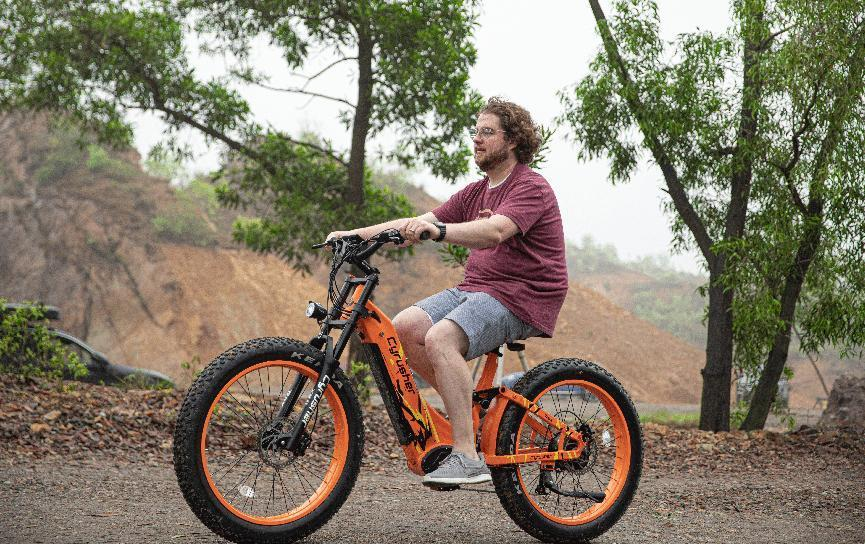

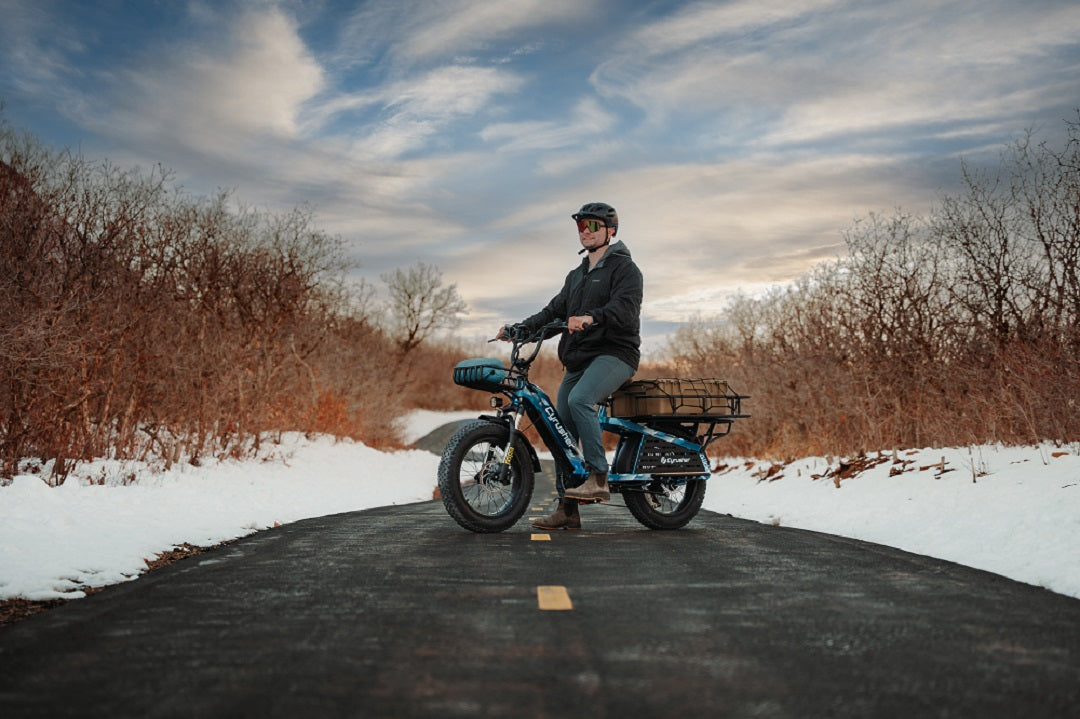
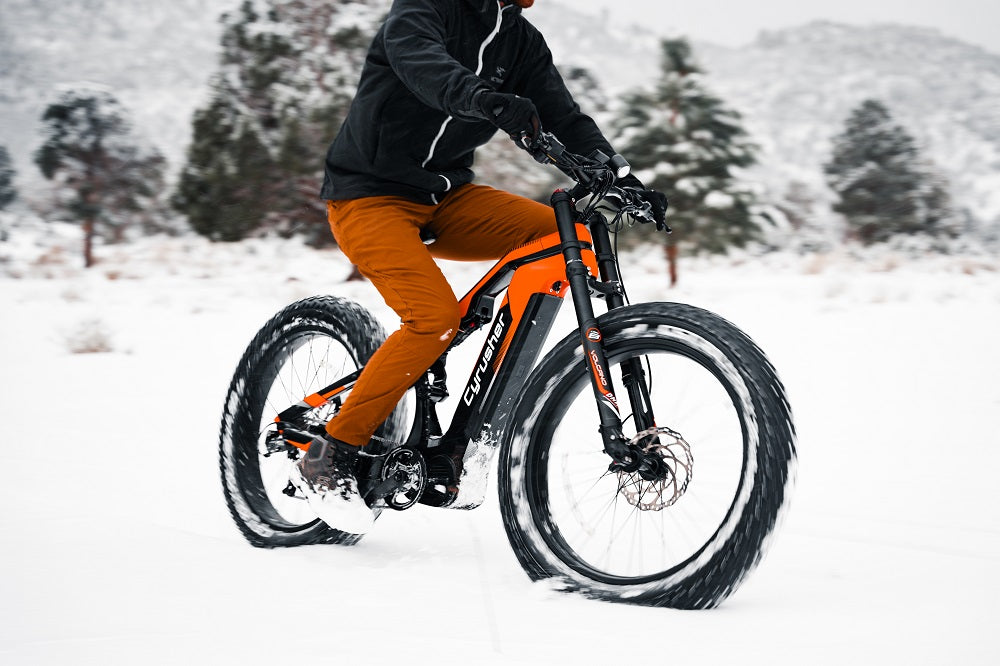
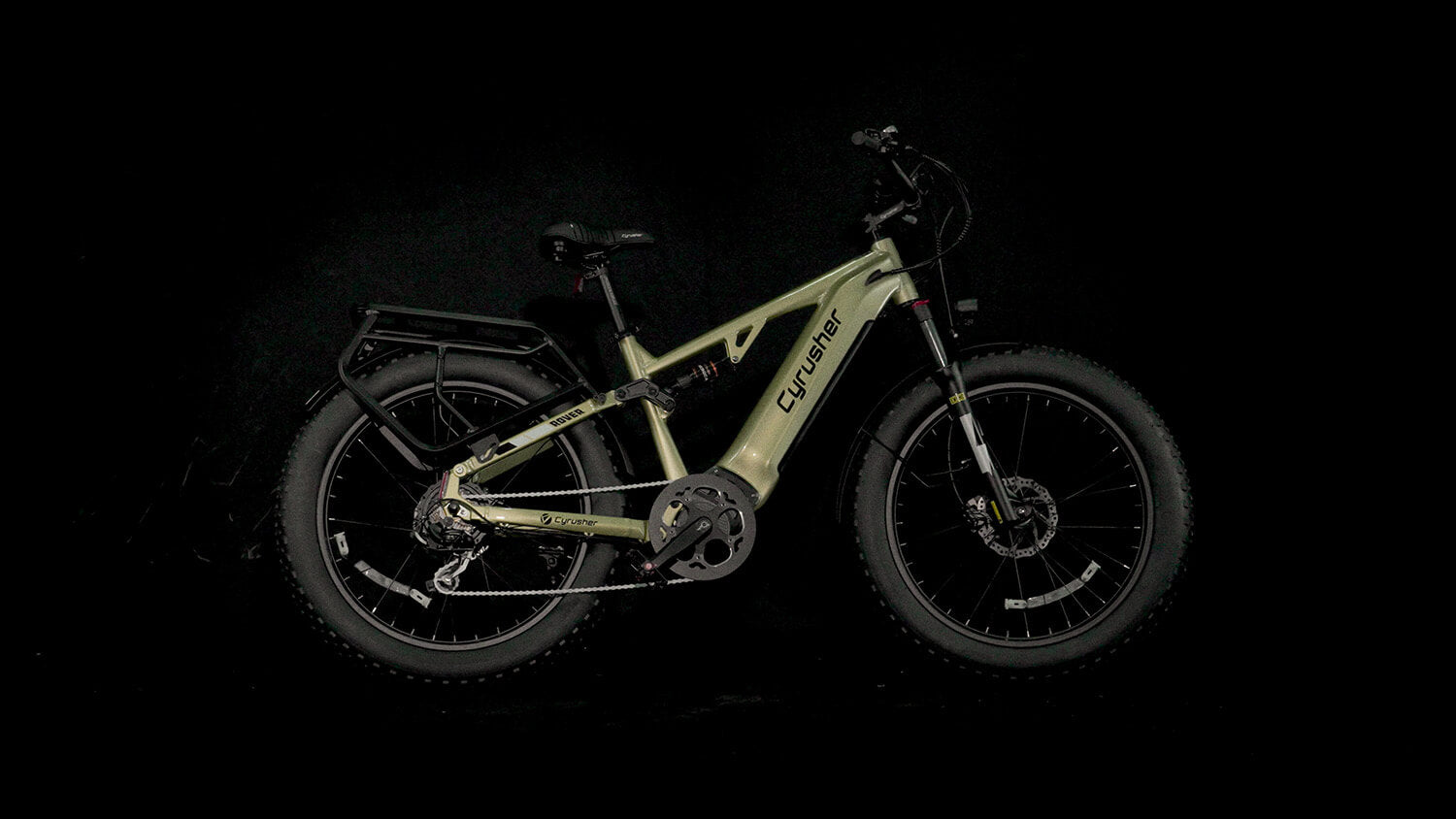
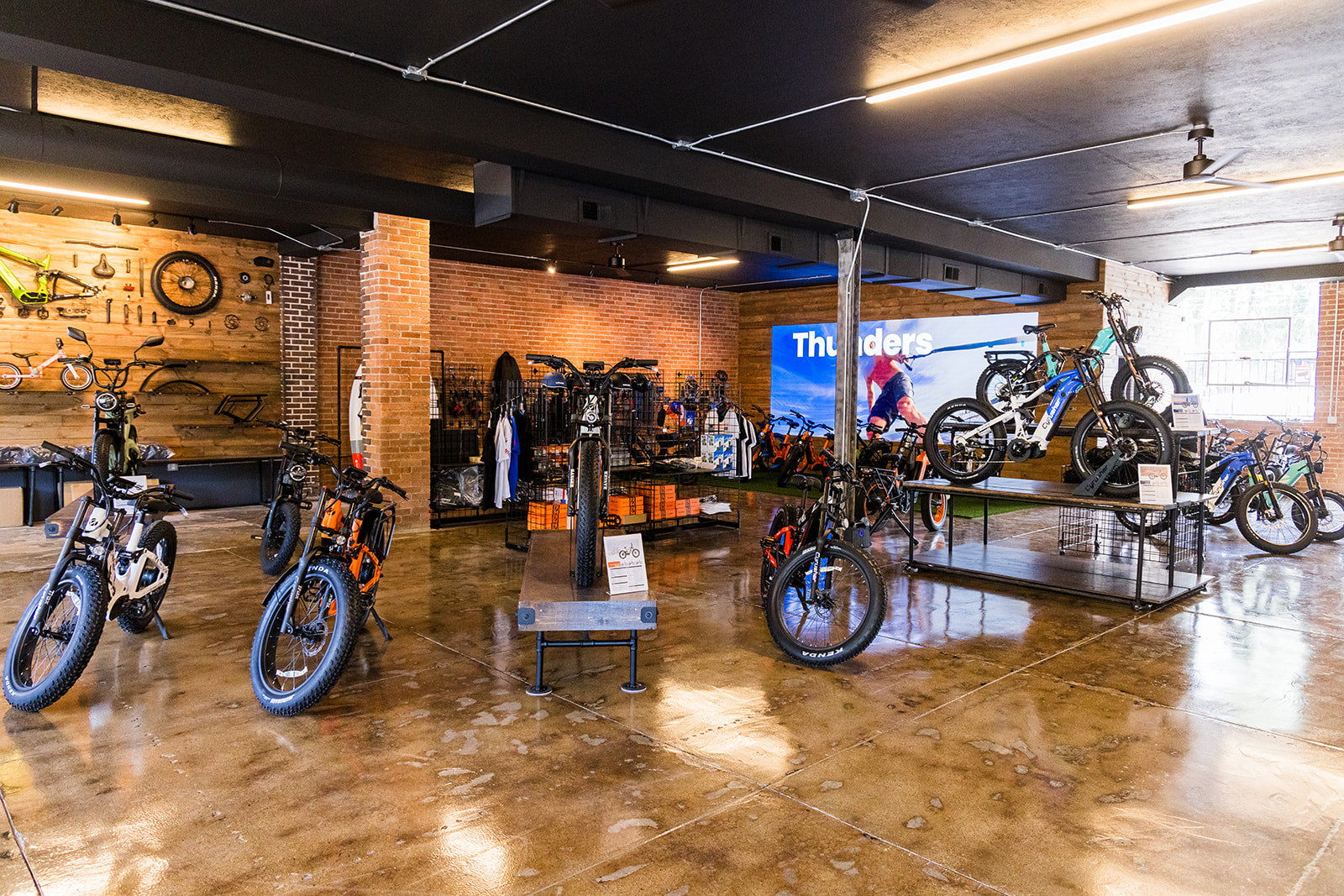
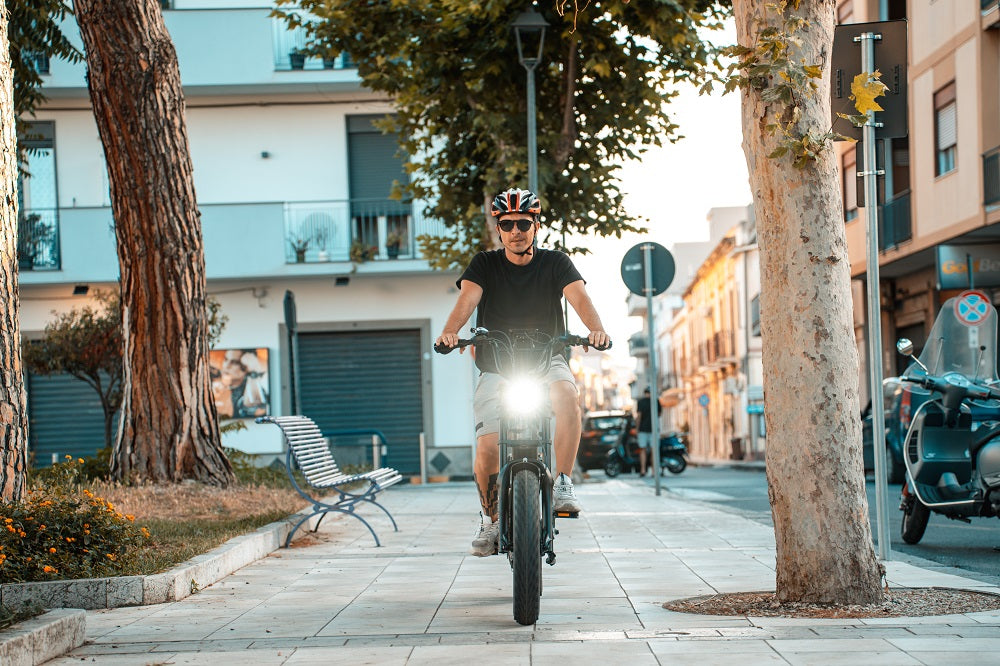

Share:
Are Electric Bike Legal in UK
Expert Tips for Resolving Common Ebike Problems